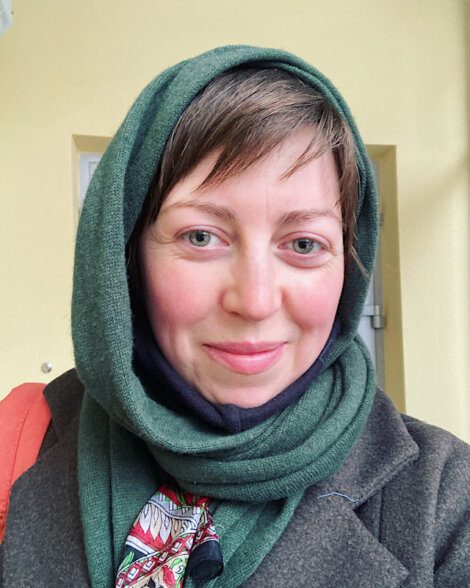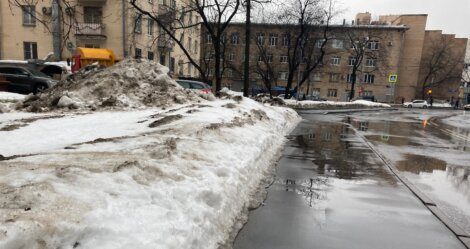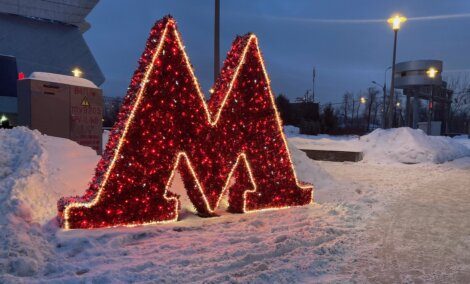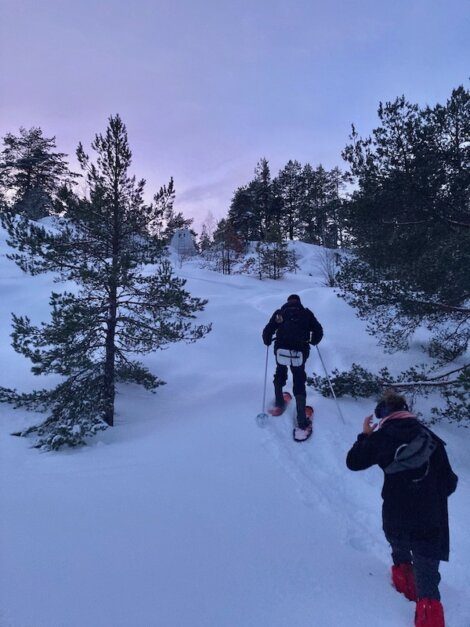Viewpoint / Letter from Russia
Shetland journalist Jen Stout first visited Russia in 2005, on a school trip with Anderson High School Russian teacher Marion Ockendon. She’s now living in Moscow on the Alfa Fellowship Program, a professional development initiative for Brits, Americans and Germans.
This will – hopefully – be the first of many Letters from Russia.
I’ve thought long and hard about how to give folk back home a sense of what life is like here in Moscow. In many ways this shouldn’t be too hard; Moscow is a normal city. A big, busy metropolis of 12 million people, with – by the way – excellent public transport and very clean streets. I have the same uneasy relationship to it as I do to any big city, and I escape whenever I can to hills, sea and forest.
On the other hand, it increasingly feels like I am in a different world, because the version of events unfolding on the television every morning is completely at odds with the version playing out in the west. One thing is clear: nobody I speak to here wants a conflict. There is no clamour for war, none at all.
People are busy dealing with surging inflation, the high price of groceries. And nobody wants war with Ukraine, in particular – ‘our brothers’, I hear this phrase over and over.
There are quite enough ‘hot takes’ on the political situation going around without me contributing yet another. Instead, while I’m still here – and I pray I do get to stay for the next six months – I want to tell you a bit about life in Moscow, and in the places I visit around the country.
Aye, but we’ll pay for it! This fine slice of Scottish pessimism was ringing in my ears this morning as I picked my way through a half-frozen soup of old, dirty snow and lumpy ice in Moscow’s Petrovsky Park.
A month ago, this was a true winter wonderland. Moscow was blessed with a snowy winter, not like some years recently when the rain poured and snow was imported to please the tourists. No, we were lucky: before Christmas the temperature finally plummeted properly, and the city was transformed.
Admittedly the dumper trucks and tractors clearing the roads at 5am mean I haven’t slept more than a few hours each night for months, but it’s just about worth it to feel the crunch of fresh snow under your feet, marvel at the huge icicles forming from building ledges, and enjoy the festive lights twinkling in a white landscape. They go big on Hogmanay decorations here – even the trams get draped in fairy lights for a month. You can feel a bit of the magic of a Russian winter.
But of course, that magic is really to be found out of the city. One morning, in early January, I struggled out of a tent into a biting cold I’d never experienced before – well down past -20 degrees – and saw Lake Ladoga frozen over, a heavy fog sitting over the surface as far as the eye could see, in the pale glow of a 9.30am dawn.
On the horizon of this huge lake, forested islands seemed to be floating in the mist, treetops frozen white. And yes, the Bunsen burner in the polytunnel-kitchen had frozen stiff, so no porridge that morning, but what did it matter.
Later we packed up and walked for an hour through the forest, past trees so heavily laden with snow they looked on the brink of collapse, in a kind of forest stillness that makes everyone naturally fall silent.
So the beauty and majesty of the Russian winter is impossible to overstate. But oh, then you pay for it.
This week the temperature crept up and up, and the icicles that looked so pretty now shake loose, threatening to impale unwitting pedestrians many storeys below.
A common sight all winter is the tiny figures on top of huge buildings, perilously close to the edge, dislodging great drifts of packed snow and ice and pushing them to the street below, where a cordon warns pedestrians to give a wide berth. A huge chunk of city budgets goes towards this monumental effort: clearing roads and pavements, salting everything to within an inch of its life, and smashing the death-icicles, so that something approaching normal life can continue.
As for my normal life, it’s largely taken up with planning trips, meeting a dizzying stream of new people, and with the long struggle to become fluent in Russian – not there yet, at all, but I can hold a conversation, and listen to the news.
Of course what I need is immersion, and so regularly take myself off on Russian-speaking camping trips like the one to Lake Ladoga. A huge challenge at first, by the fourth day even the slang becomes easier to understand, and I’m hoping I’ll be able to go on some longer hikes in the mountains, when spring arrives.
At the moment, of course, things are very unpredictable, and very worrying. Worrying for my Moscow friends; worrying for my friends in Kyiv and Kharkiv. Pray for good sense to prevail, to avoid a war that’s only wanted by a few old men in suits.


























































